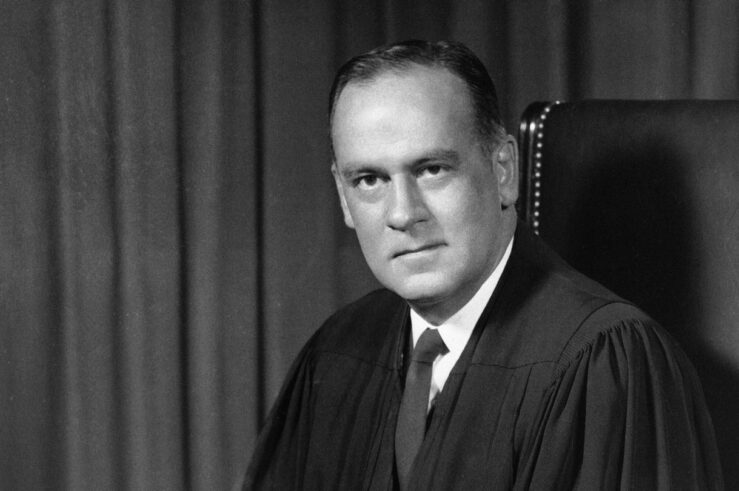Showing results for: “digital markets act”
FTC Noncompete Rule–and FTC Competition Rulemaking–Are on the Ropes
Judge Ada Brown of the U.S. District Court for the Northern District of Texas issued an Aug. 20 order effectively striking down the Federal Trade Commission’s (FTC) April 2024 rule barring noncompete clauses (“noncompetes”) in employment contracts. Ryan LLC, a global tax-services and software provider, had challenged the rule, which had been scheduled to take ... FTC Noncompete Rule–and FTC Competition Rulemaking–Are on the Ropes
ICLE Files Amicus in NetChoice Social-Media Regulation Cases
Through our excellent counsel at Yetter Coleman LLP, the International Center for Law & Economics (ICLE ) filed an amicus brief with the U.S. Supreme Court in the Moody v. NetChoice and NetChoice v. Paxton cases. In it, we argue that the First Amendment’s protection of the “marketplace of ideas” requires allowing private actors—like social-media ... ICLE Files Amicus in NetChoice Social-Media Regulation Cases
Right to Anonymous Speech, Part 1: An Introduction from First Principles
What is anonymity? Do we have a right to it? And against what other values should this right be balanced when it comes to government regulation? This blog post will be the first in a series that looks at what anonymity is, why it is important, and what tradeoffs should be considered when applying a ... Right to Anonymous Speech, Part 1: An Introduction from First Principles
Legislative History of the National Securities Markets Improvement Act of 1996
We’ve been discussing the proxy access case, see here, here, and here, where the DC Circuit overturned an SEC rule for failure to meet its requirement under the National Securities Markets Improvement Act of 1996 to consider the effect of the rule on efficiency, competition, and capital formation in addition to its historical mandate to consider ... Legislative History of the National Securities Markets Improvement Act of 1996
Breaking Down the American Choice and Innovation Online Act
The American Choice and Innovation Online Act (previously called the Platform Anti-Monopoly Act), introduced earlier this summer by U.S. Rep. David Cicilline (D-R.I.), would significantly change the nature of digital platforms and, with them, the internet itself. Taken together, the bill’s provisions would turn platforms into passive intermediaries, undermining many of the features that make ... Breaking Down the American Choice and Innovation Online Act
The FTC Knows It When It Sees It
When Congress created the Federal Trade Commission (FTC) in 1914, it charged the agency with condemning “unfair methods of competition.” That’s not the language Congress used in writing America’s primary antitrust statute, the Sherman Act, which prohibits “monopoliz[ation]” and “restraint[s] of trade.” Ever since, the question has lingered whether the FTC has the authority to ... The FTC Knows It When It Sees It
FTC Section 5 Statement: Less Guidance Than Meets the Eye
On Nov. 10, the Federal Trade Commission (FTC) issued a new statement explaining how it will exercise its standalone FTC Act Section 5 authority. Despite the length of the statement and the accompanying commentaries from most of the commissioners, there is less guidance than one might expect from so many words. One thing is clear, ... FTC Section 5 Statement: Less Guidance Than Meets the Eye
Why the Federal Trade Commission (not the Consumer Financial Protection Bureau) Should Oversee Consumer Protection in Financial Markets
On February 28, the Heritage Foundation released Prosperity Unleashed: Smarter Financial Regulation, a Report that lays bare the heavy and unnecessary burdens imposed on our economy by defective financial regulations, and proposed market-oriented regulatory reforms that would benefit American producers, consumers, and the overall economy. In a recent Truth on the Market blog commentary, I ... Why the Federal Trade Commission (not the Consumer Financial Protection Bureau) Should Oversee Consumer Protection in Financial Markets
Comment to the Federal Reserve Board on Regulation II: Where’s the Competitive Impact Analysis?
I have submitted a comment to the Federal Reserve Board concerning Regulation II, along with the American Enterprise Institute’s Alex Brill, Christopher DeMuth, Alex J. Pollock, and Peter Wallison, as well as my George Mason colleague Todd Zywicki. Regulation II implements the interchange fee provisions of the Dodd-Frank Act. The comment makes a rather straightforward ... Comment to the Federal Reserve Board on Regulation II: Where’s the Competitive Impact Analysis?
Acting AAG’s Policy Speech Sends the Wrong Signals on Antitrust Enforcement (or “a Wild Ride Back to the Fifties and Sixties”)
In a September 20 speech at the high profile Georgetown Global Antitrust Enforcement Symposium, Acting Assistant Attorney General Renata Hesse sent the wrong signals to the business community and to foreign enforcers (see here) regarding U.S. antitrust policy. Admittedly, a substantial part of her speech was a summary of existing U.S. antitrust doctrine. In certain ... Acting AAG’s Policy Speech Sends the Wrong Signals on Antitrust Enforcement (or “a Wild Ride Back to the Fifties and Sixties”)
If the UK Wants to Remain a Tech Leader, It Needs Less Regulation, Not More
Brexit was supposed to free the United Kingdom from Brussels’ heavy-handed regulation and red tape. But dreams of a Singapore-on-the-Thames are slowly giving way to ill-considered regulation that threatens to erode Britain’s position as one of the world’s leading tech hubs. The UK Competition and Markets Authority’s recent decision to block the merger of Microsoft ... If the UK Wants to Remain a Tech Leader, It Needs Less Regulation, Not More
Are rules incompatible with the web? Let’s hope not: A response to Tim Wu
According to Cory Doctorow over at Boing Boing, Tim Wu has written an open letter to W3C Chairman Sir Timothy Berners-Lee, expressing concern about a proposal to include Encrypted Media Extensions (EME) as part of the W3C standards. W3C has a helpful description of EME: Encrypted Media Extensions (EME) is currently a draft specification… [for] an ... Are rules incompatible with the web? Let’s hope not: A response to Tim Wu










